|
So this one's a short one. I am honored to announce that we now have a (soon-to-be weekly) podcast available for your listening pleasure. The show is called DM Shower Thoughts, and it was, I dare say, one of the best podcast experiences I have ever had so far. It may have helped that my partner in crime is one of my awesome fellow Dungeon Masters here at Questers' Way or for the fact that we actually have professional chemistry. ;) Anywho, if you're tired of just reading my words and you need something to listen to on your way to work or headed home, give us a listen. We is good people, and we're covering topics in gaming that NO ONE else is. Hope I hear you through the airwaves. Game on. Our podcast is hosted on Podbean, where so many good podcasts are. Type in qwayGM.podbean.com or click HERE.
See you at the table. -Adamus
0 Comments
GM's Note: The following tips are also life tips (as any tabletop tip inherently is) in the best sense. A lot of what I learned about being a decent human being was explored in a tabletop setting with family and friends; whether that be D&D, or Uno, Monopoly, or King of Tokyo. Interacting with our fellow humans is enlightening and awesome; here are some ways to help gain perspective, understanding, empathy, and respect - and maybe some storytelling tips, too! 1) Respect The Gestures Of Your Allies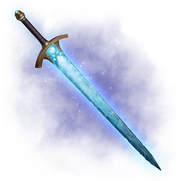 I'll use a specific example for this one. Say you're a new party member; everyone else is pretty established, they've got more loot than you (and they know it), and they've been playing longer. You waltz into a shop, and want to buy an awesome custom weapon, but you're super short on gold. You're the new dude, the party doesn't want you to feel left out, so the rich fighter in the group chips in the 2000 gold needed to help you buy your awesome weapon... Maybe don't try to sell that awesome weapon the very next chance you get. There's a couple reasons for this. 1) It makes the people who chipped in feel cheated - like you used them somehow. Gold, like real money, can take some work to accumulate, and not unlike a child whining for a toy that they never play with, the people who helped you realize that maybe you didn't need the thing in the first place. 2) It chips away at their sympathy for your plight. If they stick up for you and you abuse it/expect it no matter what, sooner or later, like the boy who cried wolf, when you REALLY need help, you may not get it. What it really comes down to is the awareness and empathy of others' time and energy; it's a perspective thing. Put yourself in their shoes. They risked their (character's) lives fighting a dangerous crime lord to earn that money, they made the generous choice to help you buy a thing so you can feel more useful, and then the very next chance you get, you try to sell that thing. It can feel like a slap in the face; like their generosity had no value. Acknowledge and respect your allies' decisions to help you out by utilizing the tool, weapon, armor, info, or action that they helped you acquire. Or, if you realize "I don't actually need this," acknowledge your mistaken impulse and maybe find a way to "pay back" that ally. Not unlike a parent who helps a grown adult out of a financial bind, when that adult realizes they're in better shape than they thought, and HAS A CONVERSATION with their parent, and creates a plan to pay back their generosity. It builds accountability. Trust me. 2) Maintain Nuance (explain how, not why) It goes a long way to describe what your character does WITHOUT explaining why they did it. This practice opens up some cool role-playing elements: 1) If what you did is interpreted as "strange" by your fellow characters, they can talk to you in-character about it...and you can respond in-character. This provides dynamic opportunities to act and role-play - without breaking that character to launch into your full backstory as the player. Keep yourself a wonder; it supports good storytelling. 2) It keeps interactions from repeating themselves. If you explain the WHY of your actions every time you do them, especially for repeated actions, then you might actually come off as annoying your fellow players; because they've heard it already a thousand times. Patient individuals will continue to entertain this behavior, but it doesn't mean that that patience might not be running thin. If you know you've said it before, they get it. Avoid becoming a broken record. 3) A sense of mystery is a powerful thing. Seek moments like THIS: Eric: Urren takes a twill from his pack and sets out a few vials, some strips of parchment, ink, and a small porcelain doll, and tries to look busy while you guys talk. INSTEAD OF THIS: Eric: Urren takes a twill from his pack, because he's got one of those with all his herbs for making potions and medicine. He unrolls it, taking out some vials, that he can use to make you guys potions later, or some other stuff that you'd like, because he's proficient in his Herbalism Kit. I take out some parchment, some ink, and a little porcelain doll that I had when I was a kid and it's really important to me because someone from my backstory gave it to me and I hope I can see them again, soon. They were taken by a roving band of barbarians, and I need to travel to the Forgotten City to find any clues of his whereabouts. Oh, and also I want to look like I'm busy, can I make a Deception check? Both instances have the same visual component for the theater of the mind, but the latter reveals (in my honest opinion) WAY TOO MUCH for such a simple action. Just painting the picture, in its own simplicity, creates character nuance. If we go with the former, it opens the door for another character to join Urren and ask him about the doll. Then Urren (in character) could give small details about it, feel nervous and put it away, launch into its life story, or stare blankly at this person, refusing to say anything. This interaction provides character hints; where everyone is slowly discovering elements of Urren - without being expressly told by the player. It creates questions in the other characters; why did me asking about the doll strike such a nerve? Why won't he talk about it? Is it a painful memory? Why the parchment? Is he writing a letter? Is he writing anything? What's in the vials? ...And all of these questions are explored through the theater of the characters - the character wonders these things, the character attempts to understand their ally through character interaction. It makes for intriguing stories of complex characters; characters that grow and evolve through the theater of the mind. In strict simple terms, when the game starts, have a little less PLAYER, and a lot more CHARACTER. Be an actor, without explaining why you're acting. 3) Keep Your Spells A Secret...until you use them Casters are awesome, and D&D helps do a great job of making magic mysterious and powerful. Similar to #2, you might be excited about sharing a new spell that you just learned and all the ways that it's awesome...but don't. Not yet. You can talk to the DM about it, you can gush about it to your buddies at the bar, but during the session...DON'T TELL ANYONE. You want THIS to go down: "Hey guys, I just learned a new spell, and I gotta' tell ya', it's going to be AMAZING when it shows up!" Now, the party doesn't know the context of this spell; they aren't also required to memorize everything you can do on top of their own stuff, they know you got something cool, but they can still be pleasantly surprised when you use it. Magic is mysterious. Keep it that way. 4) Realize That It Is Rarely About Just You I've said it before, I'll say it again. This is a group game. But here we're going to take this down a few avenues. Character Development That Isn't You: Maybe you were the first arc in the story, so you got used to being the center of the attention, and now your initial conflict is over and it's someone else's turn. How do you manage that? Well, start by being present for the other characters in their own conflicts. They were there for you (or maybe they weren't, and that could be an interesting interaction when they bring up why you're being such a sour-puss), so you should be there for them. Find ways to watch their back, support them when they need to stand up for themselves, help them figure things out; sometimes just making sure they're not alone can go a long way in building that character trust. ...Some of the groups I've been in feel like comrades in a war; we had each other's backs, fought against insurmountable odds in a fictional world that was tangible to us, and because we trusted and supported each other, we succeeded. Those are friends I still have to this day. Your Comfort Isn't The Only One That Counts: if you are making others uncomfortable to make yourself comfortable, you are wrong. If you are doing things that annoy the majority of the party, and they have communicated as such respectfully, yet you still do these things, you are wrong. Why are you wrong? Because this is a GROUP GAME. Comfort is one thing, but compromise and cooperation are skills, and thus are learned. In order to maintain any comfortable environment, compromises must be made, because everyone is different. What a concept. I am honored to DM in a place where groups don't bully each other, so when discomfort comes up, it's usually that someone isn't socially aware of the fact that they are taking others' patience for granted, and a constructive conversation may be needed. ...AND THAT'S OKAY. No person can strive to be better at anything without first recognizing that something might be wrong. Which leads me to... Character Conflict Is Not A Bad Thing: clashes between characters, or even players, don't have to be a detriment. So many people today are influenced by the idea that conflict is BAD. Disagreement and opposing ideas are BAD. This is wrong, and a great place to build better communication skills of ideas, ideals, ethics, plans, and decisions is in A FANTASY - where whatever you decide, does not have real life consequences. :) Plus, conflict - dynamic conflict that isn't petty - makes for good stories. If it's between players, the conflict isn't the goal, moving forward together after its resolution, is. 5) Don't Put Your Fellow Party Members In Boxes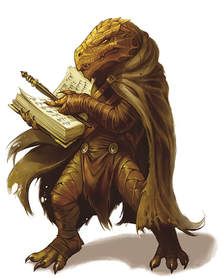 We're all familiar with basic party roles. The Tank, the Blaster, Buff/Debuff, Healer...Sneaker? I'm not talking about these. What I am talking about here is a bad habit I've been seeing, which is more complex than I think people realize. The habit is to define a character by their class, and openly say things like, "Well, Jim, you're a bard, so you act like this, and this, and this, and did you know you can do this, too?" or "Are you sure you want to act that way? Because you know, as a Druid, you're connected to the natural world and therefore it doesn't make sense for you to make that decision." This is especially insulting to players that have been playing for a number of years; they understand their own mechanics, they've built their backstory, they actively role-play, they don't meta-game...yet you're telling how they should be playing. The last example I overheard, and I'm certain it was too ridiculous to be serious, but it illustrates the feeling just the same. Player 1: (Level 6 Bard) Hey, did you know you can cast spells? Player 2: (Level 13 Wizard) ...Yes. I am aware. Player 1: Well, as an Abjuration wizard, you should be picking only protection spells so you can get the most out of them. Here, let me tell you about every single spell you obviously don't know about... As a DM, I don't tell players how they should play based on their class. They made their class choice for any number of reasons, but most of all, to play the way they wish to play. This way will undoubtedly evolve, but it's not MY character, so I have little say in how they're going to play it. And just because in fantasy literature, a certain sorcerer acts a certain way, does not mean that a player should act the same way just because they are a sorcerer. Each character is unique within their own context. I have no business steering their play toward a specific outcome due to my own preconceived notions (coaching/teaching is one thing, railroading is another). Players/characters will surprise me by creating new avenues; new stories, and that's one of the most beautiful things about the game. Whew. World-building and organization next time!
I'll see you at the table. -Adamus |
Adam SummererProfessional Game Master musician, music teacher, game designer, amateur bartender, and aspiring fiction author. Honestly, I write what I want when I want. Often monster lore, sometimes miniature showcases, and the occasional movie/show review.
Archives
April 2024
Categories
All
|
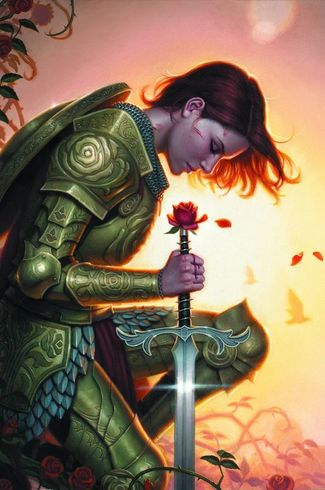
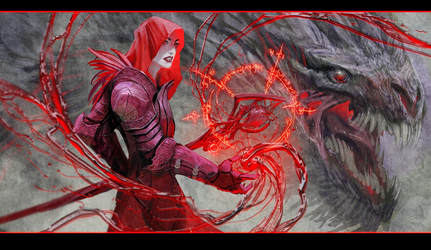
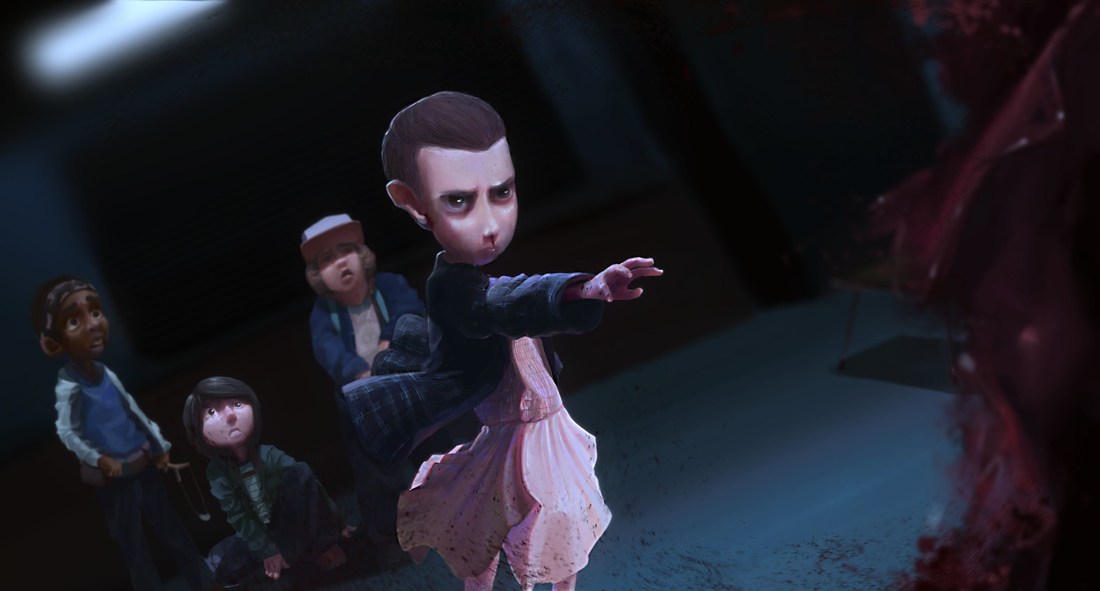
 RSS Feed
RSS Feed